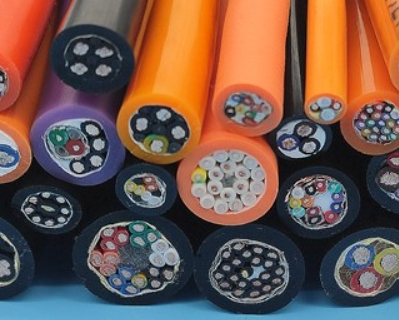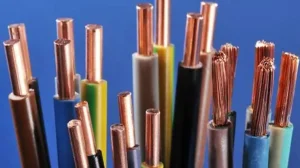Common Types of Wire
Copper Wires
Copper wires are among the most commonly used conductors in electrical wiring due to their excellent conductivity and flexibility. They are ideal for various applications, including residential, commercial, and industrial wiring projects. Copper wires come in different gauges to accommodate different current capacities and are suitable for both indoor and outdoor use.
Aluminum Wires
Aluminum wires are also widely used in electrical wiring, particularly in larger installations where cost-effectiveness is a priority. While not as conductive as copper, aluminum wires are lightweight and resistant to corrosion, making them suitable for overhead power lines and long-distance transmission. However, special precautions must be taken when using aluminum wires to prevent issues such as oxidation and overheating.
Steel Wires
Steel wires are less common in electrical wiring but find application in specialized settings where additional strength and durability are required. They are often used in high-tension power lines and overhead transmission cables due to their robustness and ability to withstand extreme environmental conditions. Steel wires offer superior mechanical strength and are resistant to stretching and sagging over long distances.
Nickel Wires
Nickel wires are primarily used in niche applications where high temperature resistance and corrosion resistance are essential. They find use in industries such as aerospace, automotive, and electronics, where reliability and performance under harsh conditions are paramount. Nickel wires are known for their exceptional heat resistance, making them suitable for heating elements, thermocouples, and other specialized applications.
Different types of wire have its unique characteristics and advantages, making it suitable for specific applications and environments. Understanding the differences between these common types of wires is essential for selecting the appropriate wire for your electrical wiring project.

Specialty Wire
Thermocouple Wires
Thermocouple wires are designed for temperature measurement and control applications. They consist of two dissimilar metal wires joined together at one end to form a thermocouple junction. When exposed to temperature changes, thermocouples generate a voltage proportional to the temperature difference, enabling accurate temperature measurement. Various types of thermocouple wires are available, such as Type K, Type J, and Type T, each with different temperature ranges and characteristics suitable for specific environments and applications.
Magnet Wires
Magnet wires, also called winding wires or enameled wires, are insulated conductors used in electromechanical devices like motors, transformers, and generators. They’re usually made of copper or aluminum and coated with a thin layer of insulation, such as enamel or polymer, to prevent short circuits and electrical breakdown. Magnet wires have high electrical conductivity, thermal stability, and mechanical strength, making them suitable for applications needing efficient energy transfer and reliable performance.
Considering Safety and Regulatory Requirements
Fiber optic wires, also called optical fibers, transmit light signals over long distances with minimal signal loss. They’re utilized in telecommunications, data networking, and medical imaging. Fiber optics have advantages over copper wires like higher bandwidth, immunity to electromagnetic interference, and enhanced security. They come in single-mode and multi-mode configurations, each optimized for specific transmission needs.
In this guide, we’ve covered various types of wires commonly used in electrical applications. We discussed copper wires, known for their excellent conductivity and flexibility, aluminum wires, favored for their lightweight and corrosion resistance, steel wires, valued for their strength and durability, and nickel wires, utilized for their high temperature and corrosion resistance. Additionally, we explored specialty wires like thermocouple wires, magnet wires, and fiber optic wires, each serving specific functions and applications.
